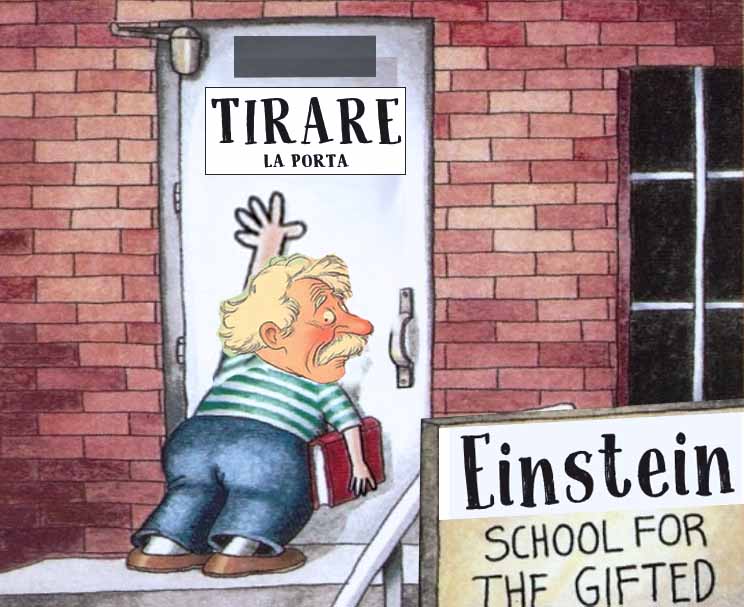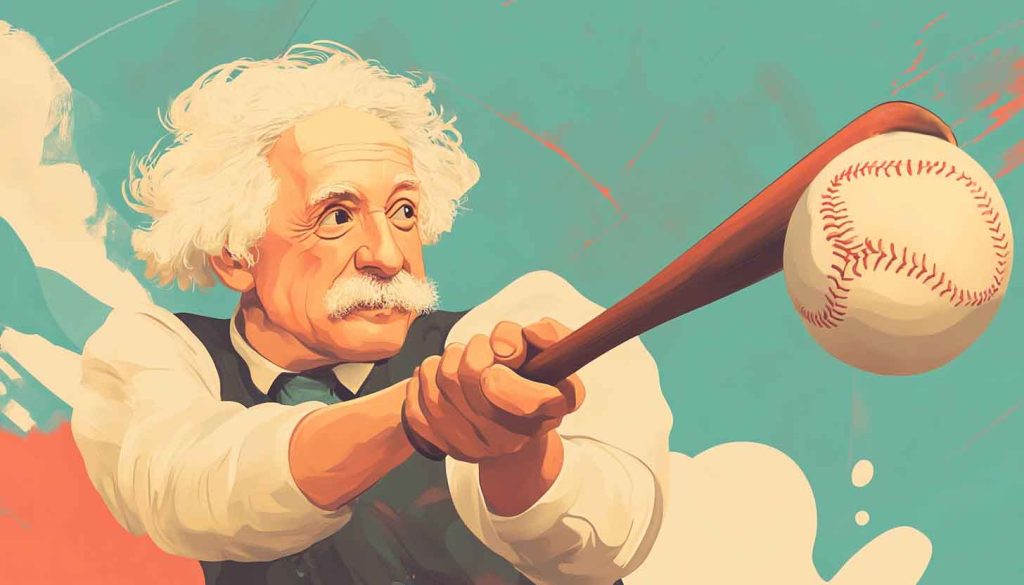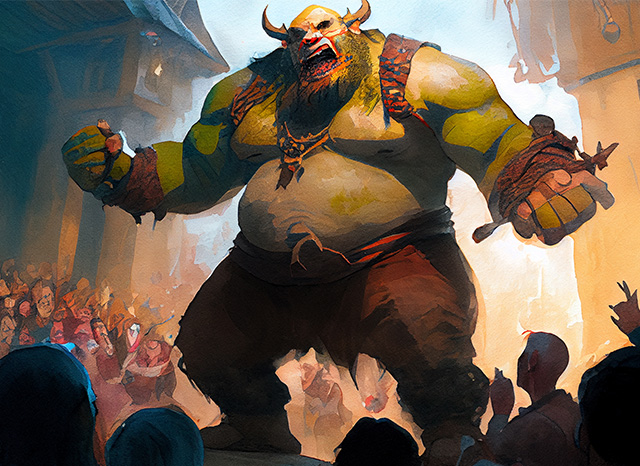
Spiegando la fisica del verbo italiano TIRARE!
Explaining the physics of the Italian verb TIRARE!
Tirare: Significa Spingere o Tirare? O Forse Entrambi?
Tirare: Does It Mean to Push or to Pull? Or Maybe Both?
Tirare è uno di quei verbi italiani che possono creare un bel po’ di confusione per chi sta imparando la lingua. Infatti, può significare sia tirare verso di sé sia lanciare lontano! Com’è possibile? È come se lo stesso verbo significasse contemporaneamente “tirare” e “spingere”!
“Tirare” is one of those Italian verbs that can cause quite a bit of confusion for language learners. In fact, it can mean both “to pull toward oneself” and “to throw something far away!” How is that possible? It’s as if the same verb could mean both “to pull” and “to push” at the same time!
Hai mai notato le porte in Italia con la scritta “TIRARE”? Ti indicano di aprire o chiudere la porta tirandola verso di te. Ma dall’altra parte della porta trovi “SPINGERE”, per dire che devi spingerla per aprirla.
Have you ever noticed doors in Italy with the word “TIRARE” written on them? It tells you to open or close the door by pulling it toward you. But on the other side of the door, you’ll see “SPINGERE”, meaning you have to push it to open.

Quando “Tirare” Significa Lanciare Qualcosa Lontano
When “Tirare” Means to Throw or Launch Something Far Away
Ecco dove la confusione aumenta! Oltre a significare “tirare a sé”, tirare può anche significare lanciare, scagliare, dare un colpo. Un po’ come “throw” in inglese, si usa quando si parla di lanciare qualcosa con forza o colpire qualcuno.
But here’s where the confusion grows! Besides meaning “to pull,” tirare can also mean to throw, hurl, or strike. Similar to the English verb “throw,” it’s used when talking about launching something with force or hitting someone.

Expressions using “TIRARE” that mean “to launch or throw”
Tirare un sasso → to throw a rock
Tirare una palla → to throw a ball
Tirare un pomodoro → to throw a tomato — perhaps at a bad comedian!
Tirare un pugno → to punch someone
Tirare uno schiaffo → to slap someone
Tirare un calcio → to kick someone
Expressions using “TIRARE” that mean “to pull back”
Tirare indietro la sedia → to pull the chair back
Tirare una leva → to pull a lever toward you
Tirare la maniglia verso di te per aprire la porta → pull back the handle
Tirare un pugno → colpire con il pugno (to punch someone)
Tirare il divano indietro per fare spazio → to pull the couch back to make room

Qual è la ragione per cui il verbo TIRARE significa due cose opposte?
What is the reason the the verb TIRARE means two opposite things?
La ragione per cui tirare può significare sia tirare verso di sé sia lanciare (spingere via) dipende dall’etimologia e dalla fisica del movimento. Ecco perché:
The reason tirare can mean both to pull and to throw (push away) comes down to etymology and the physics of movement. Here’s why:
Il verbo italiano tirare ha origine dal latino tardo “tirare”, che significava “tracciare” o “tirare”. Alcuni etimologi lo fanno risalire ancora più indietro al termine “tyrus”, collegato a un congegno meccanico usato per tirare e tendere oggetti (come una catapulta o un sistema a corde).
The Italian verb tirare originates from the Late Latin “tirare”, which meant “to draw” or “to pull”. Some etymologists trace it even further back to “tyrus”, a term linked to a mechanical contraption used for pulling and stretching things (like a catapult or rope system).
Tuttavia, in questi contesti antichi, tirare qualcosa spesso portava a un rilascio o a una proiezione con forza—ad esempio, tendere la corda di un arco prima di scoccare una freccia. Questa doppia azione (prima tirare, poi rilasciare) spiega perché tirare sia arrivato a significare sia avvicinare a sé qualcosa, sia lanciare via con forza. Pensa a questi esempi:
However, in these ancient contexts, pulling something often led to a forceful release or projection—for example, pulling back a bowstring before releasing an arrow. This dual action (first pulling, then letting go) explains why tirare could come to mean both pulling toward oneself and sending something away with force. Think of these examples:
A bow and arrow → You pull the string back before releasing the arrow.
A slingshot → You pull the elastic before it shoots the projectile forward.
A punch or a slap → You first draw back your arm before throwing the blow.
Throwing a ball → You pull your arm back before hurling it forward.

Poiché la causa (tirare) e l’effetto (lanciare/proiettare) sono spesso collegati nei movimenti reali, il verbo TIRARE ha assorbito entrambi i significati.
Because the cause (pulling) and effect (throwing/launching) are often linked in real-life actions, the Italian verb TIRARE absorbed both meanings.
Espressioni Idiomatiche con “Tirare”
Idiomatic Expressions with “Tirare”
Tirare avanti
Sopravvivere, andare avanti nonostante le difficoltà.
To get by, to carry on despite difficulties.
Non ho molti soldi questo mese, ma cerco di tirare avanti.
I don’t have much money this month, but I’m trying to get by.
Tira vento!
Sta soffiando forte il vento (the wind is blowing!
The wind is blowing!
Non uscire senza giacca, oggi tira vento!
Don’t go out without a jacket, it’s windy today!
Che aria tira?
Qual è l’atmosfera, com’è la situazione?
What’s the vibe? How’s the situation?
Prima di entrare in ufficio voglio capire che aria tira.
Before walking into the office, I want to see what the mood is.
Tirare la cinghia
Risparmiare, fare economia.
To tighten one’s belt, to save money.
Dopo le vacanze dobbiamo tirare la cinghia.
After the holidays, we have to save money.
Tirarsi indietro
Smettere di partecipare, ritirarsi.
To back out, to withdraw.
Aveva promesso di aiutarci, ma all’ultimo momento si è tirato indietro!
He had promised to help us, but at the last moment, he backed out!
Attenzione! Verbo Pronominale — Pronomial Verb: TIRARSELA!
Quando “Tirare” Diventa un Verbo Pronominale: Tirarsela!
When “Tirare” Becomes a Pronomial verb “Tirarsela!”
C’è un’altra espressione divertente con “tirare” che si usa spesso in italiano: tirarsela. Non ha nulla a che fare con il verbo nel suo senso letterale, ma significa darsi delle arie, essere presuntuosi o vantarsi troppo.
There’s another fun expression with “tirare” that is often used in Italian: tirarsela. It has nothing to do with the literal meaning of the verb but means to act full of oneself, to be pretentious, or to brag too much.
Non te la tirare!
Smettila di vantarti!
(Stop boasting!)
Se la tira un sacco!
Pensa di essere meglio degli altri.
(He/she thinks they’re better than others!)

Tirare un Sospiro di Sollievo… e un Morso di Tiramisù!
Taking a Deep Breath… and a Bite of Tiramisù!
Ora hai una buona padronanza di tirare—può significare tirare, spingere, lanciare o riportare indietro. E non dimenticare che tirare è persino incorporato in uno dei dolci più famosi d’Italia: il tiramisù! Letteralmente, “tirami su”, è il dolce perfetto per darti una carica—proprio come la tua nuova sicurezza nell’italiano!
Now you’ve got a firm grip on TIRARE—it can mean to pull, push, launch, or draw back. And don’t forget, TIRARE is even baked into one of Italy’s most famous desserts: Tiramisù! Literally, “pull me up” cake, it’s the ultimate pick-me-up—just like your newfound confidence in Italian!
Quindi, la prossima volta che sarai in una conversazione, non resterai mai senza parole. Troverai sempre qualcosa da tirare fuori dal cilindro—o ancora meglio, tira fuori una sedia e goditi un bel tiramisù!
So, the next time you’re in a conversation, you’ll never be at a loss for words. You’ll always pull something out of your hat—or better yet, pull up a chair and enjoy some Tiramisù.











Grazie! Avevo notato che tirare può significare lanciare, ecc., ma no capivo perché. Un esempio che mi piace è “tirare un bidone a qualcuno”.
Ciao Ethan! Grazie per il tuo commento. Tirare è un verbo interessante. Sono contenta che tu ti sia piaciuta la spiegazione! Ha senso adesso, no?